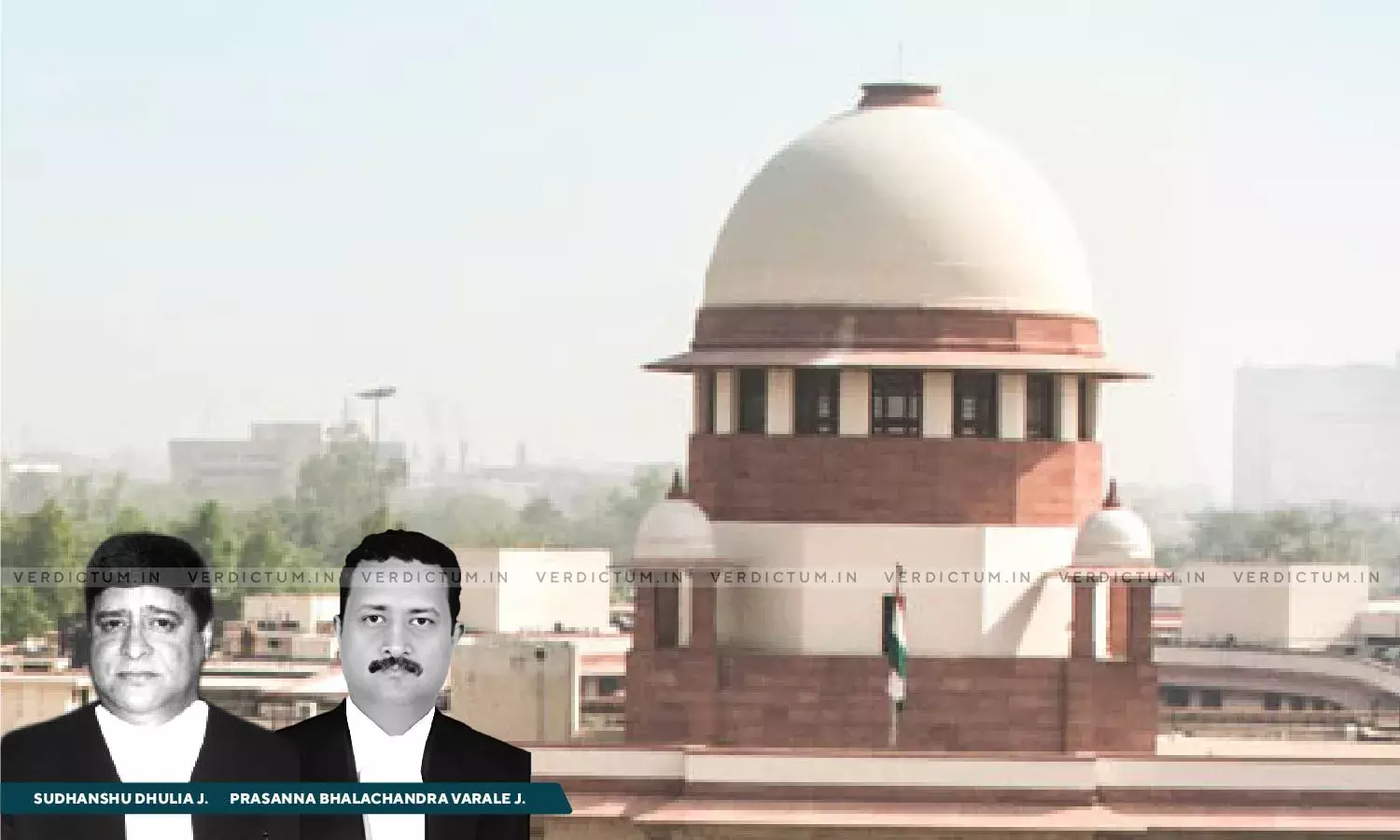‘Sufficient Cause' U/S 5 Limitation Act Can Only Be Liberally Construed When No Negligence Or Lack Of Bonafide Is Imputable To Litigant: SC
The Supreme Court reiterated that ‘sufficient cause' under Section 5 of the Limitation Act can only be given a liberal construction when there is no negligence or inaction imputable to the litigant.
The Court noted that the Allahabad High Court had rightly refused to exercise its supervisory jurisdiction under Article 227 of the Constitution after noting an inordinate delay of 14 years in filing the application under Order IX, Rule 7 of the CPC to set aside an ex-parte order of the trial court.
Justice Sudhanshu Dhulia and Justice Prasanna B. Varale observed, “Although the term ‘sufficient cause’ has not been defined in the Limitation Act, it is now well-settled through a catena of decisions that the term has to be construed liberally and in order to meet the ends of justice. The reason for giving the term a wide and comprehensive meaning is quite simple. It is to ensure that deserving and meritorious cases are not dismissed solely on the ground of delay. There is no gainsaying the fact that the discretionary power of a court to condone delay must be exercised judiciously and it is not to be exercised in cases where there is gross negligence and/or want of due diligence on part of the litigant.”
Advocate Rashika Swarup represented the appellant, while AOR Mukesh Kumar Sharma appeared for the respondents.
The appellant had sought to challenge the order of the High Court, which had affirmed the dismissal of his petition regarding a property dispute.
The appellant had argued that he did not receive the summons and notice of the case, and the advocate appointed by him, based in another city, did not diligently pursue the case. It was only when the appellant inspected the case file himself, he became aware of the order of the trial court.
However, the Supreme Court pointed out that the appellant was grossly negligent in pursuing the matter before the trial court and that the delay was not satisfactorily explained to the Court.
The Court relied on Esha Bhattacharjee v. Managing Committee of Raghunathpur Nafar Academy & Ors., (2013) 12 SCC 649 to hold that “there is a distinction between inordinate delay and a delay of short duration or few days, for to the former doctrine of prejudice is attracted whereas to the latter it may not be attracted. That apart, the first one warrants strict approach whereas the second calls for a liberal delineation.”
Accordingly, the Supreme Court dismissed the appeal.
Cause Title: K.B. Lal (Krishna Bahadur Lal) v. Gyanendra Pratap & Ors. (Neutral Citation: 2024 INSC 281)
Appearance:
Appellant: AOR Sunil Kumar Jain; Advocate Rashika Swarup
Respondents: AOR Mukesh Kumar Sharma; Advocate Kartikey




